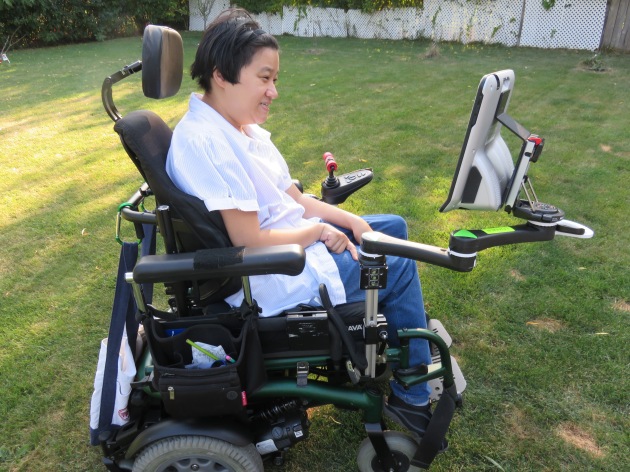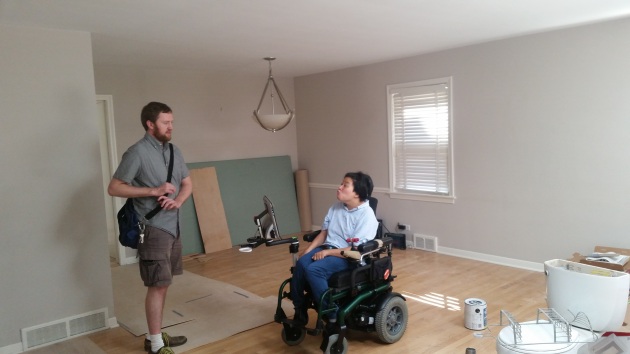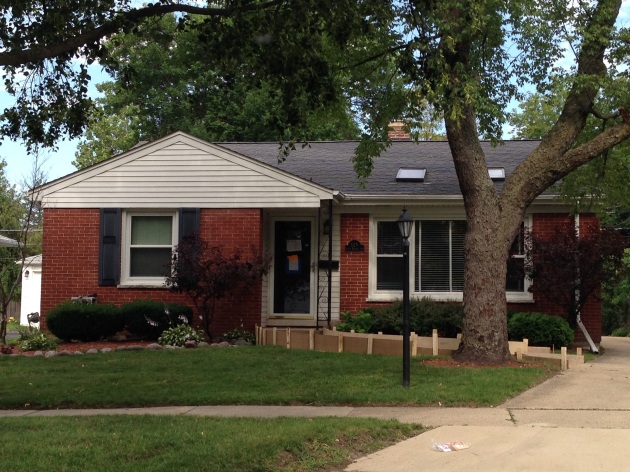As an English major in undergrad, I wrote almost all my papers examining othering in literature. What is “Othering?”—the act of distancing oneself from a group of people who are outside of one’s own group. This concept is taken from Edward Said’s Orientalism, in which he criticizes Anglo colonizers and writers for manufacturing Asia and the people of Asia without having been to Asia or having interacted with Asians. Othering applies in many relationships and contexts, such as racism.
Othering creates room for oppression and hate. It is best understood by a song in Pocahontas, called “Savages:”
Composed by Alan Menken and Stephen Schwartz © Disney. The Youtube subtitles are not accurate. Full lyrics can be found here.
In other words, it is the inability to put oneself in someone else’s shoes, creating an ‘us vs. them’ mentality, often coupled with an unequal power dynamic. There usually is an oppressed party and the oppressor oppressing them.
In the song, “Savages,” the white settlers and Native Americans both sing the chorus, “They’re savages! Savages! / Barely even human” about each other. Colonialism is a clear example of othering. The colonizer, AKA oppressor, uses force or threat of force to take over the colonized, AKA oppressed, lands and way of living by othering the colonized as weaker, uncivilized, etc. The colonizers distance themselves from the colonized by assuming the colonizers are better than the colonized and therefore in the right to take what they want and impose their ‘better way of life’ on the ‘inferior’ colonized people without knowing anything about them. In “Savages,” both the white settlers and Native Americans other one another’s group, assuming that they are savages and wanting to kill each other before they get to know anything about each other. The word “savages” in and of itself creates othering and hate. Sadly, that word has been used to referred to Indigenous People, fostering racist beliefs and acts.
The one instance where I have difficulty with processing othering is the relationship between people with disabilities and their personal care assistants. While the people with disabilities may have the upper hand as essentially the employer in the employer/employee context, the personal care assistants also have some power in the fact that the people with disabilities cannot meet their needs without the services of personal care assistants. If an assistant refuses to give food or water, help with hygiene, etc., s/he would be the more powerful party. I’ve had great friendships with many personal care assistants and some not so great ones, like those who mother me, which may also be a form of othering.
For my senior thesis, called Ethnicities at Twilight: A Critical Look into African-American/Korean-American Relations in the 1992 Los Angeles Riots, I wrote about mutual othering between the Korean-American and African-American communities. When Boston Legal Aid interviewed me during my last year of law school and asked what I discovered about racism through this thesis, I was caught off guard, saying something PC like we are all more alike than people think. I should’ve said, just because I’m a person of color, it doesn’t make me immune from racism.
I have gotten into trouble calling out racism. I may not have always been tactful. In college, one of the feeders at my dorm for students with disabilities asked, “What are you?” I laughed hysterically for a few minutes, asking her back “What are you?” I know… she was asking about my ethnicity, but I hate that question—followed by “Where are you from?”—to which, I answer that I’m from a suburb of Chicago, even though I know that’s really asking where my family is from—Korea. That white student feeder probably never asked that question in that way again, at least I hope not.
No one likes being called racist, when in fact, (in my humble opinion) everyone is to some extent, even me. I catch myself thinking something of someone and say that’s racist or based on prejudices. No one is immune from racist thoughts—people of color can perpetuate mainstream Anglo-American racism against other people of color.
If you know anything about the relationship between Korea and Japan, you’d know there’s animosity on both sides—from Japan colonizing Korea: changing it’s name from Corea to Korea so Japan comes first alphabetically, forcing Korean men to fight as Japanese soldiers, and serial raping Korean women—AKA Comfort Women. I know more of the Korean perspective because my mom often speaks of her anti-Japanese sentiments, citing that Germany apologized for the Holocaust, yet Japan still denies the atrocities it committed to Koreans during that same era. Although it’s not as bad as parents bringing kids on picnics to watch innocent African-Americans lynched during the Jim Crow days, I believe my mom’s rants still try to instill hate. I’m glad to say it didn’t work, I have Japanese-American mentors and friends.

Image Description: Black and white sketch drawing of a large gathering of over 50 men with hats and guns watching a man standing on a donkey with a noose around his neck, about to be hung on a tree.
Upon searching for an image involving lynching, I discovered Hanging Trees: The Untold Story of Lynching in California, found here. It reports that many Mexican-Americans and Chinese-Americans were lynched by vigilantes without any trials. I never knew this.
As I’ve mentioned before, I am racist too. As a Korean-American with a disability, I never really fit in anywhere. I have many early memories involving Korean-Americans trying to convince my parents to institutionalize me, even my relatives. My first best friend was an able-bodied Korean-American elementary school classmate, whose mom made us stop being friends. For the longest time, I thought it was because of my disability—but gradually understood it was probably because I lived in Skokie, a less affluent neighborhood than where I was bused to school.
So when I was young, I consciously avoided Korean-Americans, wishing I was another race—because maybe, just maybe, the members of that race would accept me and my disability. This was racist and a form of othering of me to think that all Korean-Americans would be similarly narrow minded. But fortunately, I have since then made some really good Korean-American friends, who flocked to me on the first day off law school and beyond. As for the disability community in the U.S., which seems predominately white and culturally insensitive (I’ve heard what I felt were racist remarks and jokes from peers with disabilities), I couldn’t avoid them, as the education system usually grouped us together. I also now have good friends with disabilities.
This above video shows a White filmmaker, who traveled near the headquarters of the Ku Klux Klan to document reactions to him holding a Black Lives Matter sign, He stands below a billboard advertising WhitePrideRadio.com and AltRightTV.com, which say are “For the Family.” You may think othering looks like this. But othering does not always involve physical attributes. While racism does, there can be othering that involve invisible characteristics.
I planned to get certified in sailing the summer between high school and college through an adaptive sailing program in Chicago. My sister went with me for my first lesson. They strapped me and another woman with a physical disability to chairs in the boat. Our instructor was a white male teacher from a suburban school. For the entire lesson, he only spoke with my sister. This pissed me off. Let’s say he was intimidated talking to me with my speech impediment, but this does not explain why he ignored the other woman with a physical disability, who spoke clearly. This pissed me off even more. I never returned to sailing. I know I shouldn’t other people who sail, but I’m still not a fan.
Another example of othering is gang violence. Although rival gang members may come from similar racial and socio-economic backgrounds, they are so infatuated by hate and othering of rival gangs, nothing will stop them from killing rival members–not even children bystanders. I may be over simplifying gang violence; I admit I do not understand the pressures involved in that life. But there must be substantial othering involved for a person to devalue human lives enough to kill other people and risk life in prison to do so.
We need to be aware of when we and the people around us are othering before it escalates in violence, like the deaths of so many innocent African-Americans at the hands of police, who consciously or unconsciously yield greater power over the Black community, who have been historically violently and socio-economically oppressed in the U.S. and continue to be today. I realize non-stop thinking about racism and othering is hard—my college friend and I often discussed race as two women of color, but as we became busy with life—her with motherhood and a full time academic job, and me just with surviving adulthood with a disability—we discuss race less and less. However, we all need to be conscious of when we, ourselves, and our peers and co-workers other oppressed people—call it out, stop it from escalating into any action; not just during protests and media coverage, but every single day!
I am not necessarily supporting defunding the police. I believe that even starting fresh with a community based system may eventually incorporate othering and unequal power dynamics. I do think there is merit in removing the police from Chicago Public Schools and using those funds for services, like mental health services. I do not have first hand knowledge of CPS, but feel it is problematic to treat students as criminals, reinforcing the school-to-prison pipeline, when suburban schools have hall monitors instead of police.
I did not understand how African-American police could engage in police brutality against members of their own African-American community, but it seems the culture of racism and othering in the police department can trickle down to many, regardless of color, ethnicity, and gender. This is the same culture of racism and othering in our society at large.
Similar to how rape is not an act of love or lust, but power; to me, racism is less about skin color and more about how the dominate race exhibit power over other races. There was a time when Italians and Italian-Americans were treated as the ‘lessor or inferior’ race. I believe racism and othering is less about physical looks, but more who has the power to define the ‘inferior’ groups, often associated with physical characteristics (think the “airen race”), usually to the advantage of those with power.
We must root out othering, which includes racism, especially the extreme and physical forms, as well as the subtle quieter forms, before we all kill each other. We must teach our children to empathize, not other. We must address the underlying othering and unequal power dynamics that perpetuate poverty, injustice, and hate through racism and all oppression.










